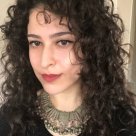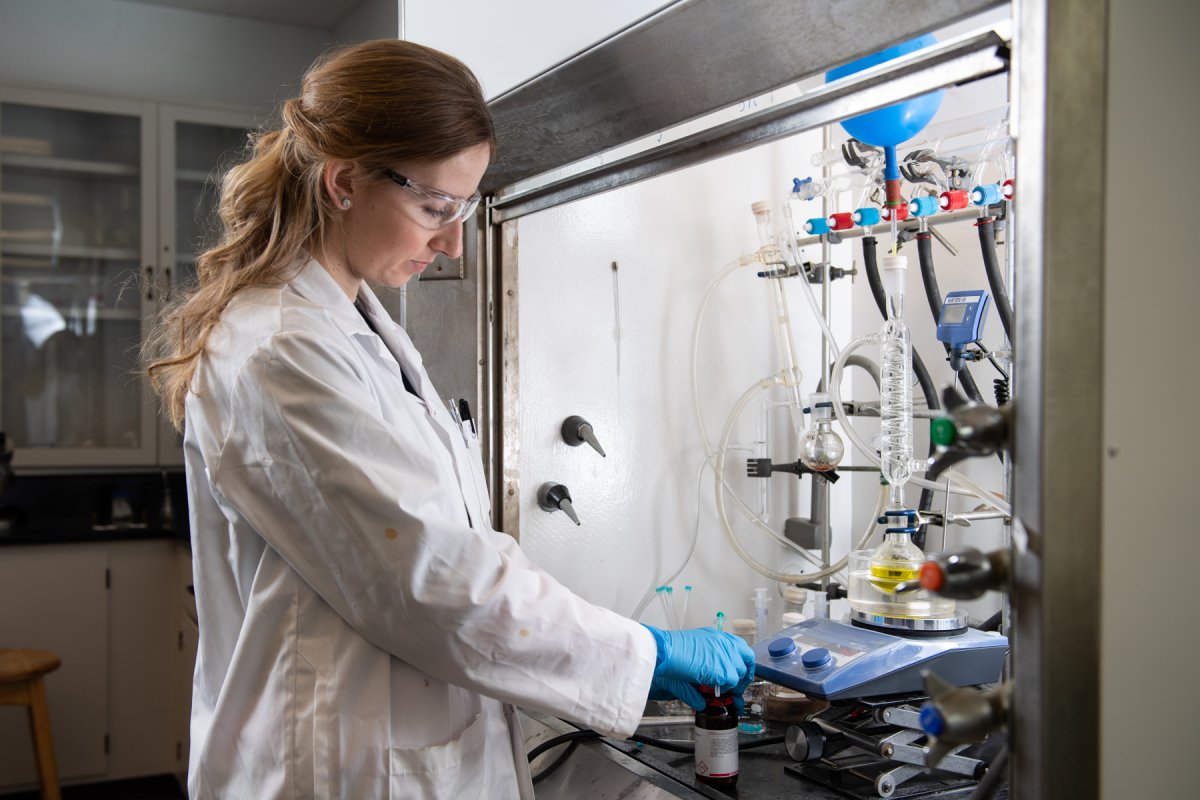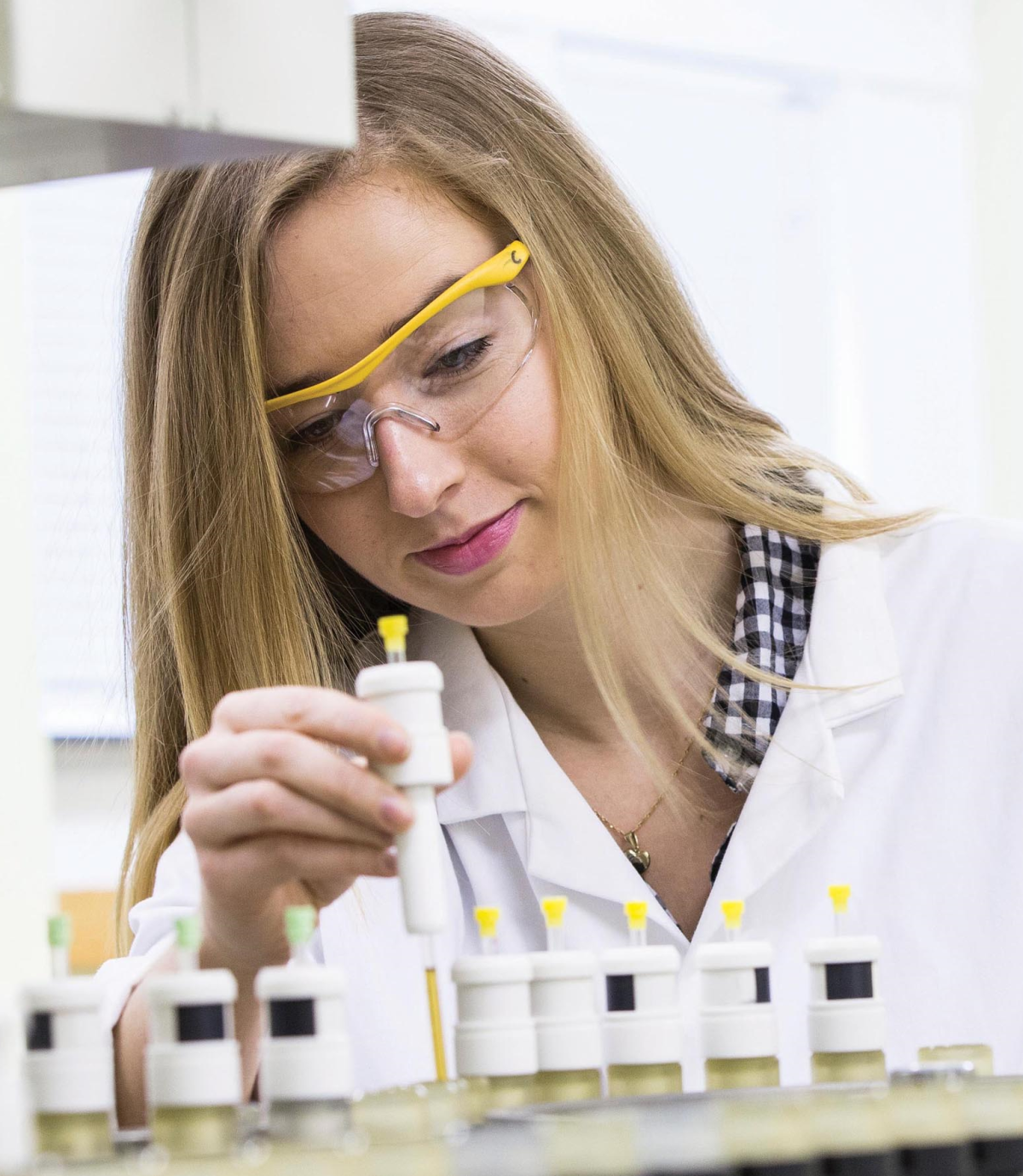There are 19 women from Nova Scotia and New Brunswick featured in the Request a Woman Scientist database launched by 500 Women Scientists, an organization representing the voices of tens of thousands of women scientists all over the globe.

According to the organization, the Request a Woman Scientist platform connects its extensive multidisciplinary network of vetted women in science with anyone who needs to consult a scientist for a news story, invite a keynote speaker or panelist for a conference or workshop, find a woman scientist to collaborate on a project, or serve as a subject matter expert.
READ MORE: Mercury passes across sun’s face in rare 5-hour transit
“Too often, high-profile articles, conference panels, and boards are filled with a disproportionate number of male voices,” the organization states on their website.
“Most keynote speakers at conferences are men. Panels are so frequently all-male that a new word evolved to describe the phenomenon: manels. These imbalances add up and reinforce the inaccurate perception that science is stale, pale and male.”
Creating a solution to the gender gap
Even though more women around the world are enrolling in STEM fields, according to a 2015 report, women’s voices have still been low or entirely absent in public spaces.
To help solve this gender gap, 500 Women Scientists launched the database a few years ago featuring 9,000 women working in the sciences, including a marine biologist and a director of Brain Networks and Neurophysiology Lab — both from Halifax — and a chemistry PhD student from Fredericton.
- L.A., Belfast… Rainbow Lake? Why a remote Alberta town joined cities in Plant-Based Treaty
- What to do about Olympic Stadium’s beleaguered old roof? Ideas are wanted
- SFU researchers say ant pheromones could help prevent tick bites
- B.C. orca rescue near Zeballos planning to take a ‘few days’, officials say
READ MORE: SpaceX launches 60 mini satellites in quest for global internet coverage
“I was never thinking that actually someone will reach out to me through this, which is very awesome and is like proof that it actually works,” said Barbora Balonova, a chemistry PhD student at the University of New Brunswick.
Balonova was born in Slovakia, where she finished her bachelor’s and master’s degree before moving to the U.K. to pursue her PhD in 2015. But after her Canadian supervisor decided to relocate, Balonova followed and arrived in Fredericton in 2017 to finish her degree.
“I went through different stages. It was quite the journey. I had to leave my home country, learn a completely new language and communicate the science in that language.”
Around the time that she was settling in Fredericton, Balonova said she came across the database after seeing a tweet about it and decided to join in.
“I’m quite keen on all these social media communications, and if I have the chance, I always like to share my research on Twitter or Instagram.”
Creating more opportunities for women scientists
Balonova said it’s very inspirational to see so many women in the sciences listed in the database.
READ MORE: A deadly virus affecting seals, seal lions could spread as sea ice levels decline, scientists say
She also said that women make up a huge part of the scientific community and now need “a little bit more space to show their talents to the world.”
“I feel like to support these kinds of initiatives and even a little thing like being a part of the community can maybe make a difference and push things a little bit forward,” Balonova said.
‘You can’t generalize’
Javeria Ali Hashmi, an assistant professor in the department of anesthesia and pain management at Dalhousie University, also came across the database after seeing it discussed on Twitter. She said she and “other women where we’ve been supporting each other, writing reviews for each other or recommending each other’s names” decided to put their information in the database.
She is also the director of the Brain Networks and Neurophysiology Lab, which focuses on applying computational methods to understand the role of brain activity and connectivity in pain perception and cognition. She aims to generate ideas and tools from brain imaging that can impact clinical management of chronic pain and brain-related disorders.
READ MORE: Ape fossils suggest human ancestors stood upright millions of years earlier, study says
Hashmi received her PhD from the University of Toronto and completed her postdoctoral fellowships at Harvard Medical School and Northwestern University in Chicago.
She said the Request a Woman Scientist database is a “fantastic initiative,” but there’s still so much that needs to be done to improve gender equality in the sciences.
“It’s remarkable that we have come so far and yet we are still stuck in that old mindset of questioning whether women are capable or able to perform roles related to STEM,” Hashmi said.

She’s currently working on a paper about pain, which is her specialty, with two other researchers who have a background in gender studies.
“We’re talking about how there is a bias that exists just within my own field where people keep on separating men and women just based on biology,” she said.
Hashmi explains that some researchers and scientists don’t take into account the fact there’s such a thing as gender.
READ MORE: Human-made ‘mammoth traps’ found at 15,000-year-old site in Mexico
“We also have gender, which means that there are certain social roles ascribed to men and certain social roles ascribed to women and in society through our development we absorb those rules. We become identified with them,” Hashmi said.
She says those roles are not “written in stone.”
Women have developed masculine roles, just even from a social construct perspective, like what you learn from society or how you want to perceive yourself, how you want to think about yourself and how you present yourself to the rest of the world,” she said.
Hashmi said the old of thinking that there is a fixed gender, and that women and men are fundamentally different just based on biology, is no longer valid.
READ MORE: A million cannibal ants have been unleashed from a nuclear bunker in Poland
“Yet what is happening is that in the bureaucracy and in academia, in the systems that are more ingrained, more solidified, we’re still dealing with people who hold these older mindsets about men versus women, so the perceptions towards women are conflicting,” Hashmi said.
“You can’t generalize. Just because someone has female genitalia doesn’t mean they are going to behave in a certain way.”
Amplifying the voices of women and minorities
A marine biologist at Dalhousie University in Halifax says biology has a higher proportion of female scientists than other sciences in STEM, but biologists work with a lot of computer scientists who are mostly male.
“It has always been an obvious imbalance between these two fields, so I really make an effort on social media to interact and follow specifically with other female scientists. And I think that is how I came to know about the 500 Scientists Project,” said Kristina Boerder, who is researching marine protected areas and fisheries.
She said science activism is becoming more popular, and that the #MeToo movement has created a lot of momentum to amplify the voices of women in public, especially women scientists.
“I think it’s a good resource without being too in-your-face about these things, helping people who are becoming aware of it and say, for example, I want a more diverse panel, where can I find scientists for that?”
The Request a Woman Scientist database is one of 500 Women Scientists’ more than 30 databases that focus on diversity and inclusion.
READ MORE: Couple discovers rare ‘ice eggs’ while hiking in Finland
For example, the organization offers Diverse Sources, a searchable database of underrepresented voices in the areas of science, health and the environment. Climate Voices brings scientists and citizens together to discuss climate science and local impacts of climate change, and Skype a Scientist matches scientists with classrooms around the world.
“It’s still so much portrayed that a white male is doing the science and that’s the voice of reason,” said Boerder.
“But I want to show to whoever that is out there that no matter what their background is, skin colour or religion or gender or whatever, that science is something they can do.”






Comments